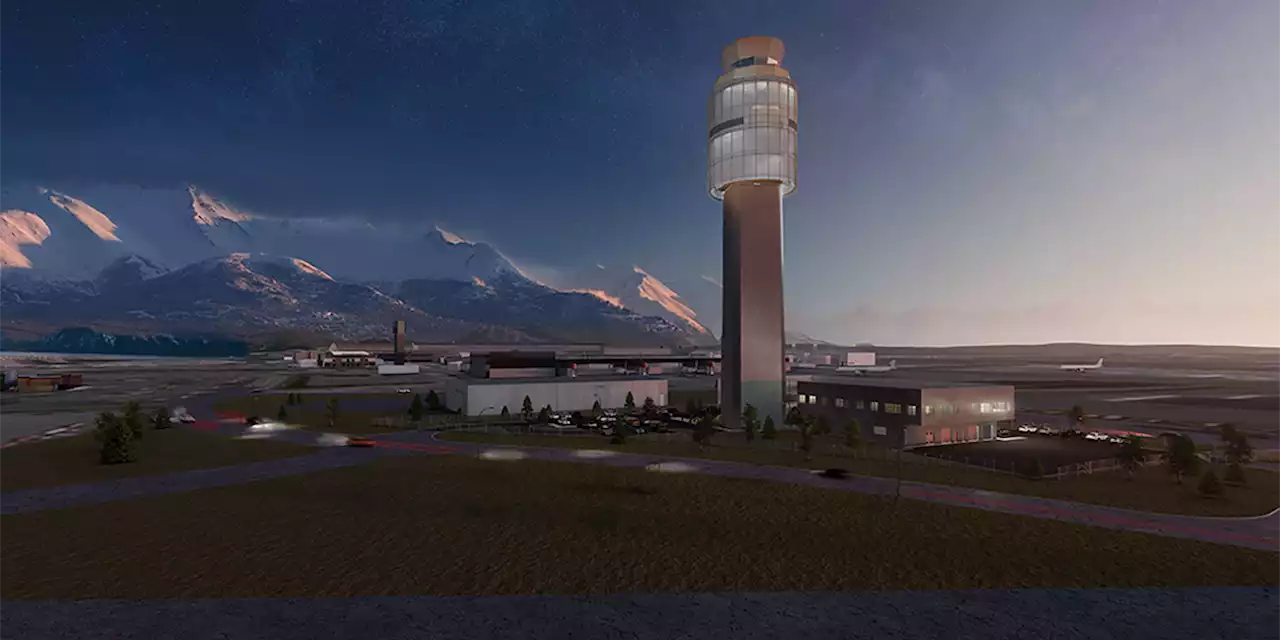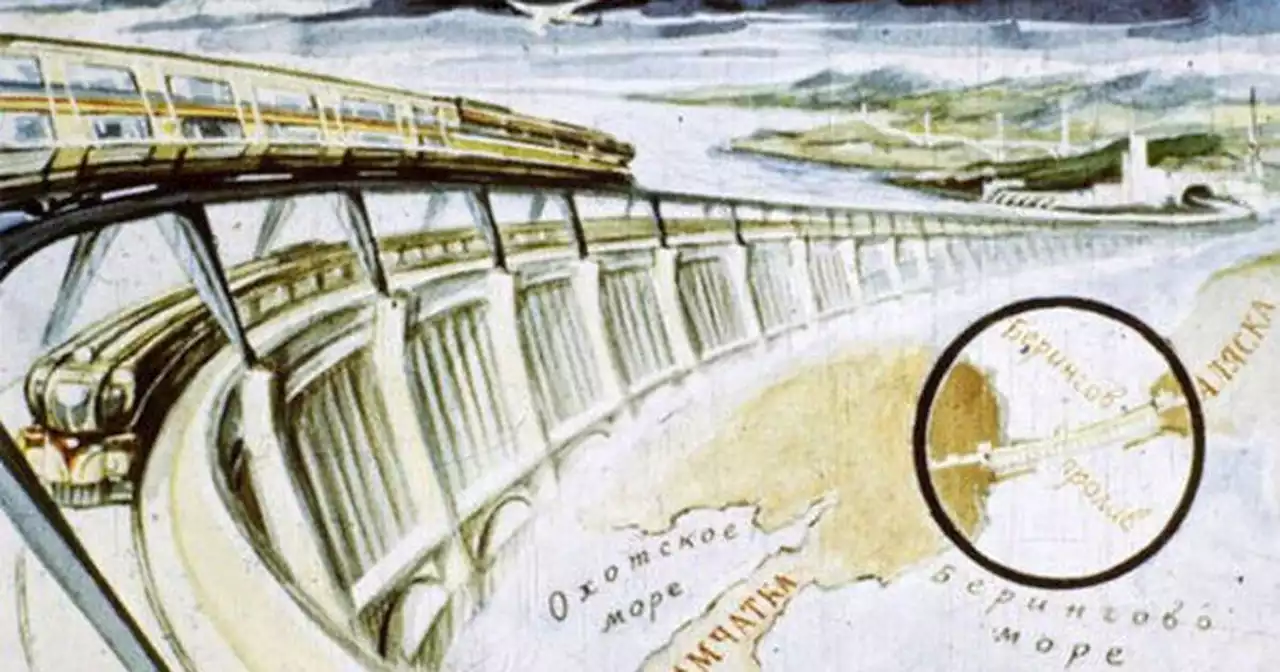The program recruited 89 Alaskan stay-behind agents but was disbanded in 1959, deemed too expensive to maintain for its uncertain value.
A still image from the 1960 Soviet propaganda film,"In the Year 2017." It shows a nuclear powered train crossing the Bering Sea atop a massive dam.on Alaska history by local historian David Reamer. Have a question about Anchorage or Alaska history or an idea for a future article? Go to the form at the bottom of this story.
At the time, Alaska was one of the likelier places where tensions between the United States and Soviet Union could have erupted into open conflict. In May 1948, Soviet forces on Big Diomede Island seized an Inupiaq party attempting to visit relatives on the other side of the Bering Sea, a traditional crossing made since time immemorial. The Alaskans were held and interrogated for 52 days before their release.
The FBI’s primary role was the recruitment, training, and equipping of stay-behind agents, “the development of individuals who could act as agents for the United States in the event that Alaska is occupied by a foreign power.” To produce a pool of candidates, the Anchorage office approached several of their closest contacts for suggestions without revealing any aspect of Operation Washtub.
Another memo offers an example of a preferred agent candidate: “a professional photographer in Anchorage; he has only one arm and it is felt that he would not benefit the enemy in any labor battalion; he is an amateur radio operator; he is a professional photographer; he is licensed as a hunting or fishing guide, and well versed in the art of survival; he is a pilot of a small aircraft; he is reasonably intelligent, particularly crafty, and possessed of sufficient physical courage.
The Air Force established a series of emergency caches that included food, fuel, radios, clothing, and medicine. In 1951, the FBI estimated it would cost at least $2,500 to prepare, stock, and install each cache, about $29,000 in 2022 dollars after accounting for inflation. Later caches included weapons, gold and silver coins for bartering, skis, climbing equipment, and other cold-weather gear.
United States Latest News, United States Headlines
Similar News:You can also read news stories similar to this one that we have collected from other news sources.
 New air traffic control tower to be tallest structure in AlaskaA new traffic control tower is scheduled to be built at Ted Stevens Anchorage International Airport, replacing the old one that has been in operation since it was constructed in 1977.
New air traffic control tower to be tallest structure in AlaskaA new traffic control tower is scheduled to be built at Ted Stevens Anchorage International Airport, replacing the old one that has been in operation since it was constructed in 1977.
Read more »
 Judge hears arguments on whether to dismiss Eastman eligibility lawsuitAttorneys for the state Division of Elections and Rep. David Eastman urged an Anchorage Superior Court judge on Thursday to dismiss a lawsuit challenging Eastman’s eligibility for office. The judge said he intends to issue a ruling by Friday.
Judge hears arguments on whether to dismiss Eastman eligibility lawsuitAttorneys for the state Division of Elections and Rep. David Eastman urged an Anchorage Superior Court judge on Thursday to dismiss a lawsuit challenging Eastman’s eligibility for office. The judge said he intends to issue a ruling by Friday.
Read more »
 Ironman Alaska canceled for 2023 and 2024Liz Perry, president and CEO of Travel Juneau, said the Ironman Alaska triathlon organizer called her to say that the decision arose from economic concerns like inflation and the potential for a recession.
Ironman Alaska canceled for 2023 and 2024Liz Perry, president and CEO of Travel Juneau, said the Ironman Alaska triathlon organizer called her to say that the decision arose from economic concerns like inflation and the potential for a recession.
Read more »
 Alaska Elections Director Gail Fenumiai retiresFenumiai oversaw elections during the COVID-19 pandemic and the transformation of the state’s voting system to involve a top-four open primary and ranked-choice voting.
Alaska Elections Director Gail Fenumiai retiresFenumiai oversaw elections during the COVID-19 pandemic and the transformation of the state’s voting system to involve a top-four open primary and ranked-choice voting.
Read more »
 Alaska routinely doesn’t budget enough for wildfire response, study findsA new study looked at six states, including Alaska, and found that the actual costs of fighting wildfires are often obscured. The study’s author says that can be a problem when governments are deciding how much to spend on mitigation.
Alaska routinely doesn’t budget enough for wildfire response, study findsA new study looked at six states, including Alaska, and found that the actual costs of fighting wildfires are often obscured. The study’s author says that can be a problem when governments are deciding how much to spend on mitigation.
Read more »
